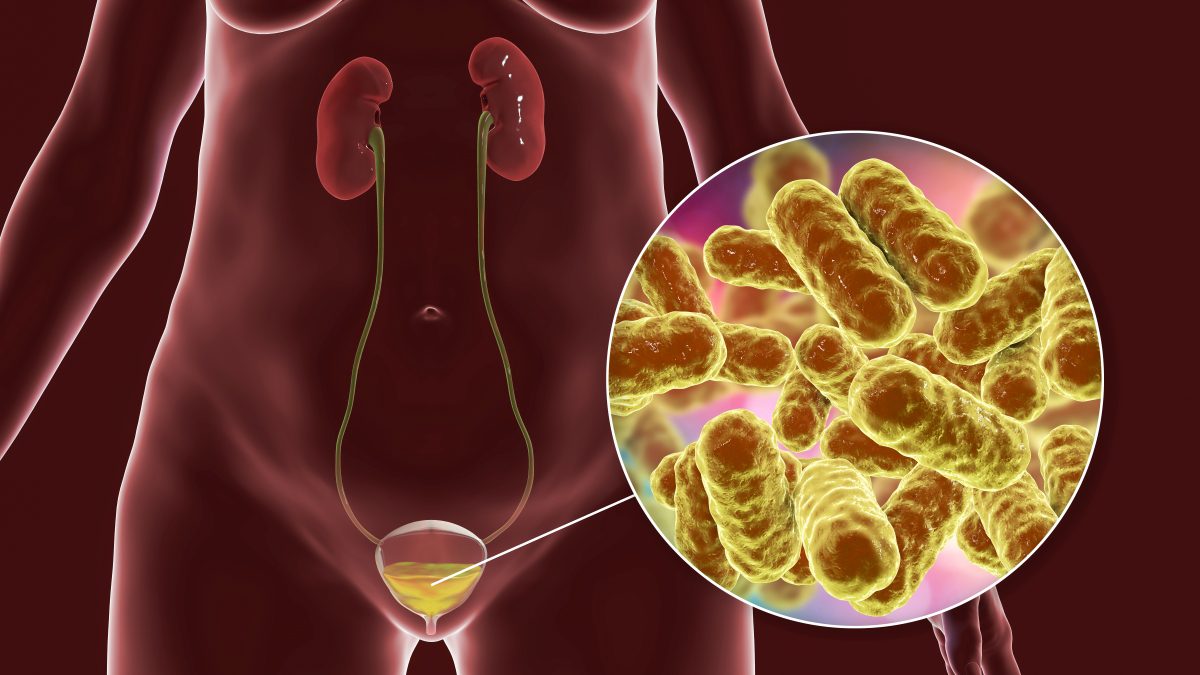Diagnostics of urinary tract infections
To determine if you have UTI, the doctor may perform several tests that include:
- Urine sample analysis. Your doctor may want to look for bacteria, white blood cells or red blood cells in your urine. In order to perform the lab analysis, the doctor may ask you to provide a urine sample. Also, your doctor will recommend you wipe your genital area with an antiseptic pad before collecting the urine sample to avoid contamination.
- Urinary tract imaging. If you experience frequent infections of the urinary tract, your doctor may want to check if you have any abnormalities in the urinary tract. To do so, your doctor may prescribe you an ultrasound. It can be either a computerized tomography (CT) scan or magnetic resonance imaging (MRI). In addition, a contrast dye may be used to highlight the structures in your urinary tract.
- Cystoscopy. Your doctor may perform a cystoscopy if you’re suffering from recurrent UTIs. To perform a cystoscopy, your doctor will insert a cystoscope, a long thin tube with a lens, in your urethra and pass it to your bladder. In this way, a physician will be able to examine inside your urethra and bladder.
- Growing bacteria from your urinary tract in the lab. In some cases, lab analysis of the urine may also include a urine culture. The urine culture test may help your doctor to identify what bacteria cause your UTI and determine the proper treatment for you.
UTI treatment
To treat urinary tract infections, doctors typically prescribe antibiotics. However, the doctor decides which drug to prescribe based on the type of bacteria found in your urinary tract and your medical conditions.
Simple urinary tract infections
For uncomplicated UTIs, doctors usually prescribe such drugs as fosfomycin (Monurol), cephalexin (Keflex), trimethoprim/sulfamethoxazole (Bactrim, Septra, etc), nitrofurantoin (Macrodantin, Macrobid), and ceftriaxone.
Usually, doctors don’t prescribe the group of antibiotics known as fluoroquinolones. This group includes levofloxacin, ciprofloxacin (Cipro) and others. The risk of these medications outreaches their benefit in treating UTIs. However, fluoroquinolones can be prescribed for treating complicated UTIs or kidney infections if there are no other treatment options.
Usually, the symptoms of UTI disappear within a few days after the beginning of treatment. Though, you need to take an entire antibiotics course as prescribe to cure completely. The course typically lasts for a week or more.
In the case of a simple UTI and if you are otherwise healthy, your doctor may prescribe a shorter treatment course such as a one to three days antibiotics course. However, your doctor will determine your treatment duration according to your medical condition, history, and particular symptoms.
Although the pain usually relieves after the beginning of the antibiotic course, your doctor may prescribe analgesics (pain relievers). Analgesics may numb your bladder and urethra in order to relieve burning sensations during urination.
Treatment of frequent infections
If you experience frequent urinary tract infections, your doctor may prescribe you certain treatments that include:
- If you stay in contact with your doctor, you may be able to do some self-diagnosis and treatment.
- Treatment with a low-dose antibiotic for six months or longer.
- If your UTIs are related to sexual activity, the doctor may prescribe you a single dose of antibiotic after sexual intercourse.
- For women after menopause, the doctor may prescribe vaginal estrogen therapy.
Severe urinary tract infections treatment
If you suffer from a severe urinary tract infection, the doctor may prescribe a treatment with intravenous antibiotics in a hospital.
Home remedies and lifestyle to relieve UTI symptoms
Infections of the urinary tract may cause pain and discomfort. However, you can take certain steps to reduce unpleasant sensations caused by your infection until treatment with antibiotics. Such steps include:
- Escape drinks that may irritate the bladder. Coffee, soft drinks containing citrus juices, alcohol and caffeine may irritate your urinary bladder and cause a frequent and intense urge to urinate. Therefore, it’s better to escape such drinks until your infection is cured.
- Drink enough liquid. It helps to keep your urine diluted and get rid of pathogenic bacteria.
- Use a heating pad. To minimize bladder pressure or discomfort, apply a heating pad to your abdomen (do not use hot pads, only warm ones).
Alternative medicine for UTI treatment
It is believed that drinking cranberry juice prevents urinary tract infections. Cranberry products, either in juice or tablet form, may have anti-infective properties. Scientists continue studying the benefit of cranberry juice in the prevention of UTIs. However, their results are not conclusive.
Although cranberry juice is generally safe to drink, some people report upset diarrhea or an upset stomach after drinking it. But you cannot drink cranberry juice if you’re taking blood-thinning medications.















Leave a Reply
You must be logged in to post a comment.